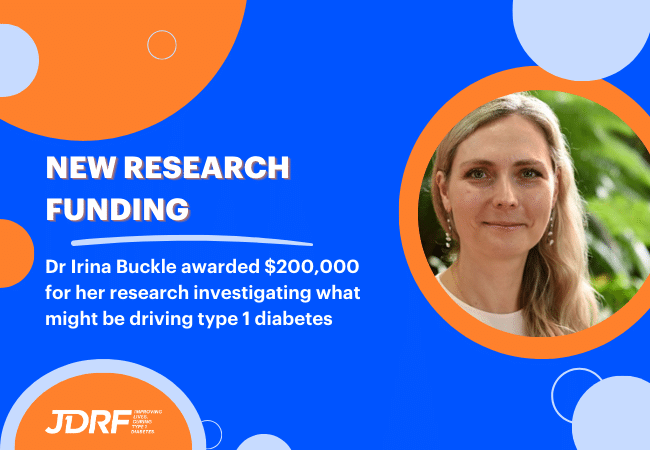COVID-19 and Children with T1D: Your Questions Answered
Professor Liz Davis is a paediatric endocrinologist and Head of Diabetes Clinical Services at Perth Children’s Hospital, and a clinical researcher at the Telethon Kids Institute.
We talked to Prof Davis and passed on your biggest questions about COVID-19 and children with T1D. Here, she talks about whether children with T1D are more likely to be affected by COVID-19, what social distancing means for kids, and whether you should still be attending your endocrinologist appointments.
1. Children are supposedly less affected by COVID-19. Is this still true for children with type 1?
We do know that overall, kids are not getting as sick as adults with COVID-19, and some may not even be aware of their symptoms. What we don’t know is how individual risk groups – such as children with T1D – will be affected. There are no reports yet that suggest that kids with T1D get more sick than any other children with COVID-19, but we are still learning about this virus every single day.
Sick day management plans are really important for any T1D kids with viral illnesses, and this is no different for COVID-19.
2. What are the guidelines for kids in terms of social distancing – can they still see their friends, or play outside?
The guidelines for kids are the same as adults – they should attempt to maintain a distance of 2m between themselves and other people. This doesn’t mean kids can’t play outside – and outdoor play is even more important than usual, as it’s good for the body and the brain.
Play in your own backyard, and go for walks when there aren’t many people about. It’s best to avoid places where large groups may gather, like playgrounds, as this makes it more difficult to follow social distancing guidelines.
There are plenty of other ways to exercise and play at home – a game of hide and seek in the garden, skipping with a rope, jumping jacks or a family game of duck, duck goose.
3. We’re told our children with T1D are at higher risk of complications from flu. Is the same true for complications from COVID-19?
It is possible that there may be complications from COVID-19 that are worse for kids with T1D, but we don’t know for sure yet. The most recent information from overseas has not indicated that kids with T1D have more problems than any other kids with COVID-19. Regardless, it’s important to remember that our hospitals are ready to take care of you if needed, and Australia has some of the best care anywhere in the world.
4. My daughter’s school is still open and I’m not able to keep her home every day. Is there anything I can do to lower her risk of getting COVID-19?
There are some simple things your daughter can do to keep herself safe at school.
· Make sure she washes her hands thoroughly and regularly
· Sneeze or cough into a tissue or elbow
· Eat a packed lunch from home rather than buying food
· Maintain distance from others where possible
If your daughter has any cold or flu-like symptoms – like a cough, fever, or runny nose – she should stay at home.
5. Are there any items that you recommend having in the cupboard for a T1D kid, in case we need to be quarantined?
While there’s no need to go all out with panic buying, there are a few things that it’s good to have spare of in the cupboard for situations like that:
· Ketone strips
· Blood glucose strips
· Insulin pump sets
· CGM equipment
· Hypo treatment
· 1 to 3 months supply of insulin, as directed by your HCP
6. I work as a primary school teacher where social distancing is not possible. My son has type 1 diabetes. Am I putting him at risk of COVID-19, and is there anything I can do to lower the risk?
In general, you should follow the same recommendations as everyone else – social distancing, frequent and thorough hand washing, as well as anything else you normally do to keep your kids strong and healthy.
It’s also important to keep your son’s blood glucose levels within target, where possible. Additionally, getting a flu shot as soon as it becomes available will protect him from seasonal influenza – something that’s even more important this year.
7. My daughter has a regular appointment with her endocrinologist scheduled for this week. Should we still be attending, or is it too risky?
For your safety, and the safety of others, many hospitals and medical centres are trying to reduce the number of people coming through their doors. But it’s still important to have your regular appointments – that’s why a lot of institutions are offering virtual appointments via video or phone.
There are ways around the things you might normally need to be present for. For example, you might be able to share an estimate of your daughter’s HbA1c from her CGM, if she has one. Your doctor may be able to mail you a script or if you need blood taken, you might be able to attend a smaller laboratory or medical centre to save you going to a hospital with lots of other people.
Read part 2: COVID-19 and adults with T1D here.
You can read more about T1D and the coronavirus here.
Please note that the above is meant to provide general guidelines and advice to families. For individual medical advice or health concerns, please speak to your healthcare professional.




